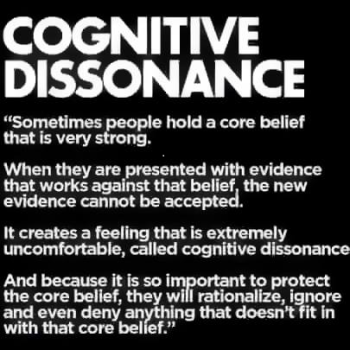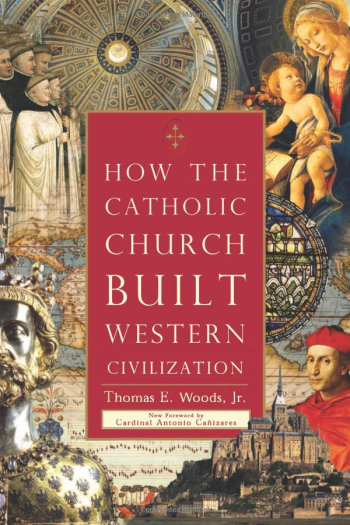Classic papist presumption and prevarication.
"Follows" turns them into Holy Spirit Inspired Scripture.

Thanks for the guffaws.
Unlike Jesus' OT references, never did He describe anything apocryphal in what you claim as "follows" in a manner confirming inspiration e.g. “as it is written” or “as the Scripture says.”
Now you dismiss the couplets given because they are all not word-for-word OT/NT proof texts. That's no way to read the Bible. Changing the goal posts doesn't help your arrogant denials.
Acts 1:15 – Luke’s reference to the 120 may be a reference to 1 Macc. 3:55 – leaders of tens / restoration of the twelve.
Acts 10:34; Rom. 2:11; Gal. 2:6 – Peter’s and Paul’s statement that God shows no partiality references Sirach 35:12.
Acts 17:29 – description of false gods as like gold and silver made by men follows Wisdom 13:10.
Rom 1:18-25 – Paul’s teaching on the knowledge of the Creator and the ignorance and sin of idolatry follows Wis. 13:1-10.
Rom. 1:20 – specifically, God’s existence being evident in nature follows Wis. 13:1.
Rom. 1:23 – the sin of worshipping mortal man, birds, animals and reptiles follows Wis. 11:15; 12:24-27; 13:10; 14:8.
Rom. 1:24-27 – this idolatry results in all kinds of sexual perversion which follows Wis. 14:12,24-27.
Rom. 5:12 – description of death and sin entering into the world is similar to Wisdom 2:24.
Rom. 9:21 – usage of the potter and the clay, making two kinds of vessels follows Wisdom 15:7.
1 Cor. 2:16 – Paul’s question, “who has known the mind of the Lord?” references Wisdom 9:13.
1 Cor. 6:12-13; 10:23-26 – warning that, while all things are good, beware of gluttony, follows Sirach 36:18 and 37:28-30.
1 Cor. 8:5-6 – Paul acknowledging many “gods” but one Lord follows Wis. 13:3.
1 Cor. 10:1 – Paul’s description of our fathers being under the cloud passing through the sea refers to Wisdom 19:7.
1 Cor. 10:20 – what pagans sacrifice they offer to demons and not to God refers to Baruch 4:7.
1 Cor. 15:29 – if no expectation of resurrection, it would be foolish to be baptized on their behalf follows 2 Macc. 12:43-45.
Eph. 1:17 – Paul’s prayer for a “spirit of wisdom” follows the prayer for the spirit of wisdom in Wisdom 7:7.
Eph. 6:14 – Paul describing the breastplate of righteousness is the same as Wis. 5:18. See also Isaiah 59:17 and 1 Thess. 5:8.
Eph. 6:13-17 – in fact, the whole discussion of armor, helmet, breastplate, sword, shield follows Wis. 5:17-20.
1 Tim. 6:15 – Paul’s description of God as Sovereign and King of kings is from 2 Macc. 12:15; 13:4.
2 Tim. 4:8 – Paul’s description of a crown of righteousness is similar to Wisdom 5:16.
Heb. 4:12 – Paul’s description of God’s word as a sword is similar to Wisdom 18:15.
Heb. 11:5 – Enoch being taken up is also referenced in Wis 4:10 and Sir 44:16. See also 2 Kings 2:1-13 & Sir 48:9 regarding Elijah.
Heb. 12:12 – the description “drooping hands” and “weak knees” comes from Sirach 25:23.
James 1:19 – let every man be quick to hear and slow to respond follows Sirach 5:11.
James 2:23 – it was reckoned to him as righteousness follows 1 Macc. 2:52 – it was reckoned to him as righteousness.
James 3:13 – James’ instruction to perform works in meekness follows Sirach 3:17.
James 5:3 – describing silver which rusts and laying up treasure follows Sirach 29:10-11.
James 5:6 – condemning and killing the “righteous man” follows Wisdom 2:10-20.
1 Peter 1:6-7 – Peter teaches about testing faith by purgatorial fire as described in Wisdom 3:5-6 and Sirach 2:5.
1 Peter 1:17 – God judging each one according to his deeds refers to Sirach 16:12 – God judges man according to his deeds.
2 Peter 2:7 – God’s rescue of a righteous man (Lot) is also described in Wisdom 10:6.
Rev. 1:4 – the seven spirits who are before his throne is taken from Tobit 12:15 – Raphael is one of the seven holy angels who present the prayers of the saints before the Holy One.
Rev. 1:18; Matt. 16:18 – power of life over death and gates of Hades follows Wis. 16:13.
Rev. 2:12 – reference to the two-edged sword is similar to the description of God’s Word in Wisdom 18:16.
Rev. 5:7 – God is described as seated on His throne, and this is the same description used in Sirach 1:8.
Rev. 8:3-4 – prayers of the saints presented to God by the hand of an angel follows Tobit 12:12,15.
Rev. 8:7 – raining of hail and fire to the earth follows Wisdom 16:22 and Sirach 39:29.
Rev. 9:3 – raining of locusts on the earth follows Wisdom 16:9.
Rev. 11:19 – the vision of the ark of the covenant (Mary) in a cloud of glory was prophesied in 2 Macc. 2:7.
Rev. 17:14 – description of God as King of kings follows 2 Macc. 13:4.
Rev. 19:1 – the cry “Hallelujah” at the coming of the new Jerusalem follows Tobit 13:18.
Rev. 19:11 – the description of the Lord on a white horse in the heavens follows 2 Macc. 3:25; 11:8.
Rev. 19:16 – description of our Lord as King of kings is taken from 2 Macc. 13:4.
Rev. 21:19 – the description of the new Jerusalem with precious stones is prophesied in Tobit 13:17.
Exodus 23:7 – do not slay the innocent and righteous – Dan. 13:53 – do not put to death an innocent and righteous person.
1 Sam. 28:7-20 – the intercessory mediation of deceased Samuel for Saul follows Sirach 46:20.
2 Kings 2:1-13 – Elijah being taken up into heaven follows Sirach 48:9.
2 Tim. 3:16 – the inspired Scripture that Paul was referring to included the deuterocanonical texts that the Protestants removed. The books Baruch, Tobit, Maccabees, Judith, Sirach, Wisdom and parts of Daniel and Esther
were all included in the Septuagint that Jesus and the apostles used.
Classic papist presumption and prevarication.??? What a weak and impotent reply.
The Protestants attempt to defend their rejection of the deuterocanonicals on the ground that the early Jews rejected them. However, the Jewish councils that rejected them (e.g., School of Javneh (also called “Jamnia” in 90 – 100 A.D.) were the same councils that rejected the entire New Testatment canon. Thus, Protestants who reject the Catholic Bible are following a Jewish council that rejected Christ and the Revelation of the New Testament.





